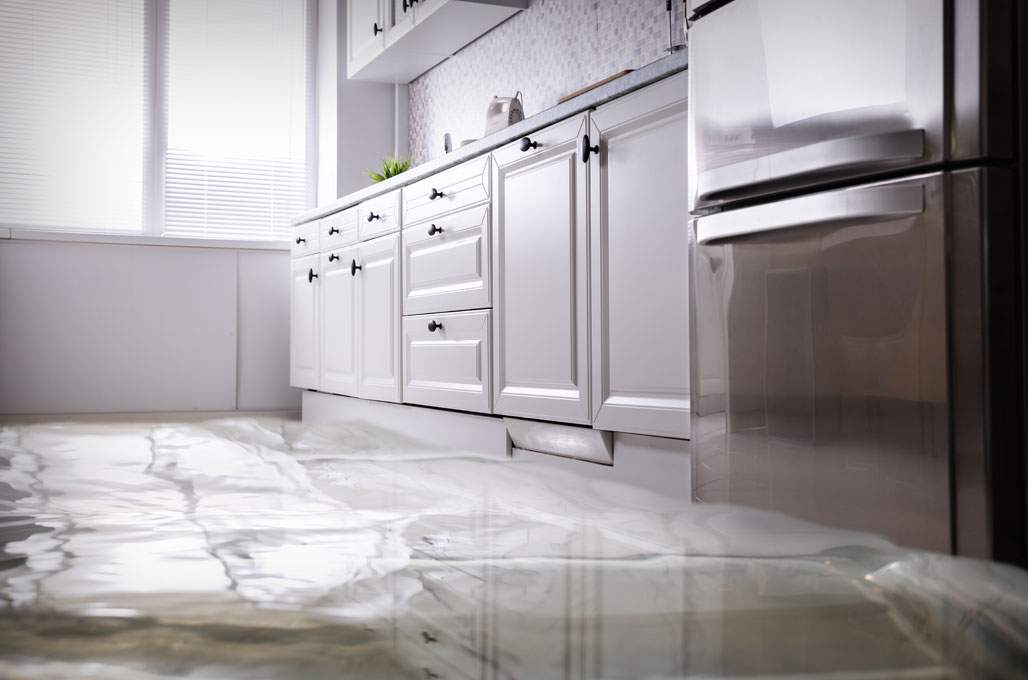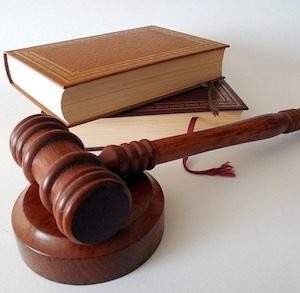Apartment Water Damage – Who is Responsible?

Living in an apartment can be a major blessing when property maintenance is needed. You don’t have to set aside money in case the water heater goes out or the roof needs repairs. But that doesn’t mean you can put aside worries about property issues entirely.
One area where liability can be confusing is water damage. Water damage in apartments can be a tough issue to navigate. From trying to determine “fault” to insurance coverage, apartment water damage can be complicated. If you are currently dealing with water damage to your apartment, you may want to act now and sort out responsibility later. This youtube video outlines what to do with your water damaged belongings.
So, who is ultimately responsible for water damage in apartments? The answer is multifaceted and, at times, murky.
Who is liable for water damage repairs?

The landlord is responsible for maintaining the building properly, and anything that comes from not doing so is going to land in their court. On the other hand, if you leave the bathtub running and forget about it, the responsibility is yours.
Keep this concept of fault in mind as we discuss other topics surrounding water damage and tenant’s rights, as it should be the lens through which further steps are viewed. At the end of the day, it should be the at-fault party and the at-fault party’s insurer who bear the majority, if not all, of the brunt when it comes to apartment water damage.
Tenant Rights
Landlord’s Responsibilities
First and foremost, your landlord is responsible for maintaining a habitable dwelling. This means that they must perform both routine maintenance and make emergency and one-off repairs. Anything that occurs due to negligence on their part is their fault.
This means that if a worn out pipe bursts or your bathroom isn’t properly waterproofed, you are not at fault.
This principle applies to other parts of the building, as well. For instance, if your roof is worn out and springs a leak, that’s on the landlord. The vast majority of situations where a problem has occurred because of a landlord’s lack of thorough maintenance or failure to address an issue will be considered their fault.
However, that doesn’t mean that you can just ignore the situation.
Tenant’s Responsibilities
As a tenant, you do have a part to play in this, and anyone who’s ever dealt with an unpleasant landlord knows that while this can be a giant pain, it is extremely important. It is your responsibility to report any issues as they occur, and to continue reporting them over and over again until they are resolved. Document each communication, noting the date of the complaint or request, the form of communication, and its contents.
Additionally, as the tenant, it is your responsibility to do what you can to keep an existing problem from becoming worse. This includes contacting your landlord for repairs, but also includes taking steps such as moving your possessions out of harm’s way or boarding up a broken window.
If you’re dealing with an emergency situation, such as a burst pipe that has caused flooding, you need to take immediate action. Contact your landlord, and if necessary, bring in professional water damage experts to help remedy the situation. The worst thing you can do is wait, as if things get worse as a result of your inaction, that’s where liability starts to shift to you.
Review Your Lease and State Tenant’s Rights Laws

They may also outline the details of their property insurance, which will give you a better idea of what to expect. You may discover reading the lease that your landlord requires that you hold renter’s insurance. This is important to have whether or not your landlord requires it, but some leases include this requirement.
Your state government also has tenant’s rights laws that can further guide you. If your lease directly contradicts these laws, then likely that part of the lease would be considered invalid in small claims court, but you may have a fight on your hands.
Who Pays for What?
Your Belongings
Damage to your belongings should be covered by the insurance policy of whatever party was at fault. However, it is possible that even if the landlord is at fault, they will have built verbiage into your lease saying that your renters insurance will have to cover damage to personal belongings.
If the water damage came from another apartment unit, then whoever was at fault in that case will be responsible in your case as well.
Unless you have an all-perils renters insurance policy, you can find all included and excluded causes of water damage listed clearly in your policy documentation. Plumbing-related problems are nearly always covered, whereas flooding and sewer overflows are commonly excluded.
Damage to the Building
In most cases, damage to the building will be covered under the landlord’s property insurance. That said, if you were clearly at fault, you’d better hope your renters policy has building repair coverage, as it may be on you.
Mother Nature
Both your and your landlord’s insurance policies will have detailed descriptions of exactly what “Acts of God” are and are not covered. For instance, if you have hail coverage but not flood coverage, you may be reimbursed for water damage that occurred as a result of hail damage, but not if it reaches the level where it would be considered a flood.
It can get very confusing and it is best to work with a flood and water remediation specialist who understands insurance policies and how to work with providers. Abbotts is here to help you navigate these confusing waters, should you find yourself in them. Contact us 24/7 for emergency assistance, or request a free consultation today.
Resources:https://ohmyapt.apartmentratings.com/tenant-rights-for-water-damaged-apartments.html
https://www.policygenius.com/renters-insurance/does-renters-insurance-cover-water-damage/
https://www.american-apartment-owners-association.org/landlord-tenant-laws/

